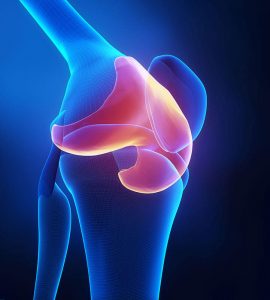Shoulder pain is a common complaint, and one of the leading causes is a rotator cuff injury. This type of injury can affect anyone—from athletes and manual labourers to office workers—because the shoulder joint is one of the most mobile and frequently used joints in the body.
What Is the Rotator Cuff?
The rotator cuff is a group of four muscles and their tendons that surround the shoulder joint. These muscles work together to stabilize the shoulder and allow a wide range of motion, including lifting and rotating your arm.
When the rotator cuff is injured, it can cause pain, weakness, and restricted movement, making simple tasks like reaching overhead or lifting groceries challenging.
Types of Rotator Cuff Injuries
Rotator cuff injuries can range from mild irritation to severe tears. The most common types include:
-
Tendonitis
Overuse or repetitive motion can inflame the rotator cuff tendons, leading to tendonitis. This is common in athletes who perform overhead activities, such as swimmers or tennis players.
-
Bursitis
The shoulder joint contains a small fluid-filled sac called the bursa that reduces friction between tissues. When this sac becomes inflamed, it can cause pain and stiffness, often accompanying tendonitis.
-
Partial Tears
A partial tear occurs when the tendon is damaged but not completely severed. This can result from acute injury or long-term wear and tear.
-
Complete Tears
A full tear means the tendon has completely detached from the bone. This is a more serious injury that often requires surgical evaluation, especially if shoulder function is significantly impaired.
Common Causes and Risk Factors
Rotator cuff injuries can develop suddenly or gradually. Key causes include:
-
Repetitive Overhead Movements
Sports like baseball, badminton, and swimming, or jobs that involve frequent lifting, can strain the rotator cuff.
-
Age-Related Degeneration
The rotator cuff naturally weakens with age, making individuals over 40 more susceptible to tears.
-
Traumatic Injury
A sudden fall, heavy lifting, or an accident can result in an acute tear.
-
Poor Posture or Muscle Imbalance
Rounded shoulders or weak upper back muscles can increase the risk of impingement and tendon injuries.
Signs and Symptoms
Recognizing the symptoms of a rotator cuff injury is key for early treatment. Common symptoms include:
- Persistent shoulder pain that worsens at night or when lying on the affected side
- Weakness when lifting or rotating the arm
- Limited range of motion and stiffness
- Clicking or popping sensations during shoulder movement
If pain continues for more than a few days, or if you experience sudden weakness after an injury, it is important to consult an orthopaedic specialist.
How Rotator Cuff Injuries Are Diagnosed
Diagnosis begins with a physical examination to assess strength, mobility, and pain points. Your doctor may also order imaging tests to confirm the injury:
- X-rays – Rule out bone spurs or fractures that could contribute to pain
- Ultrasound – Shows tendon movement and can detect tears in real time
- MRI scan – Provides a detailed view of soft tissues to assess the severity of tears or inflammation
Treatment Options
Treatment for rotator cuff injuries depends on the type and severity of the injury, as well as your activity level and overall health. Options typically include:
Non-surgical Treatments
- Rest and activity modification: Avoiding repetitive overhead movements gives the shoulder time to heal.
- Physiotherapy: Strengthening the shoulder muscles helps restore function and prevent future injuries.
- Anti-inflammatory medications: Over-the-counter pain relievers can help manage swelling and discomfort.
- Corticosteroid injections: In cases of persistent pain, targeted injections may provide temporary relief.
Surgical Treatments
Shoulder surgery may be recommended if:
- A full-thickness tear is present
- Non-surgical treatments fail to relieve symptoms after several months
- Shoulder weakness significantly affects daily activities
Surgical procedures can include arthroscopic repair, tendon transfer, or, in severe cases, shoulder replacement.
Recovery and Prevention
Recovery times vary depending on the severity of the injury and the treatment approach. Mild cases often improve within a few weeks with proper care, while surgical recovery can take several months. Adhering to prescribed physical therapy exercises is crucial for regaining strength and mobility.
To prevent rotator cuff injuries:
- Warm up and stretch before physical activity
- Strengthen shoulder and upper back muscles regularly
- Maintain good posture to reduce shoulder stress
- Avoid repetitive overhead motions whenever possible
When to Seek Medical Advice
Do not ignore persistent shoulder pain, especially if it interferes with sleep or daily activities. Early evaluation by an orthopaedic specialist can prevent further damage and lead to faster recovery.
By understanding how the rotator cuff works, what causes injuries, and the available treatment options, you can take proactive steps to protect your shoulder health and maintain an active, pain-free lifestyle.




